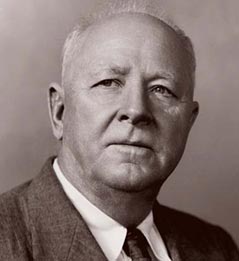A Quote by Pico Iyer
Some people will always ground themselves very strongly in a piece of soil, a grandmother's property, a tiny plot of land, and that's great. But in the Age of Movement, there's no question that the number of people who don't - or can't - is growing exponentially.
Related Quotes
I like getting involved with the people and finding out exactly what is happening. Does it have to do with the property, the home, the individuals, or a combination of everything? To me, that's always been my main goal, to find some information, to bring some type of resolution to help the people out with a piece of property that is having a major problem or a haunting. That's always been my passion and still is to this day when getting involved with anything, to try to find answers and help people.
The effect of the corporation, under the prevailing policy of the free, go-as-you-please method of organization and management, has been to drive the bulk of our people, other than farmers, out of property ownership; and, if allowed to go on as present, it will keep them out... The paramount problem is not how to stop the growth of property, and the building up of wealth, but how to manage it so that every species of property, like a healthy growing tree will spread its roots deeply and widely in the soil of a popular proprietorship.
If you're a progressive, you can find lots of people who call themselves conservatives, but who agree with you on lots of things. There are people who call themselves conservatives, but who love the land as much as any environmentalist. Progressives share a number of common values with people who call themselves conservatives. Barack Obama has understood that very well. What he calls bipartisanship is not adopting conservative views, but finding where people who consider themselves conservatives share with him and other progressives these fundamental American values.
It's as if the whole notion of growing soil is something only lunatics would think about. But why not grow soil? Does anything make more sense than growing soil? Isn't that more important than tractors, trucks, silos, barns, county fairs and country music? Of course it is. And yet to the lion's share of American farmers, the very notion of growing soil is just plain silly.
History is largely a record of human struggle to wrest the land from nature, because man relies for sustenance on the products of the soil. So direct, is the relationship between soil erosion, the productivity of the land, and the prosperity of people, that the history of mankind, to a considerable degree at least, may be interpreted in terms of the soil and what has happened to it as the result of human use.
Some people are like ants. Give them a warm day and a piece of ground and they start digging. There the similarity ends. Ants keepon digging. Most people don't. They establish contact with the soil, absorb so much vernal vigor that they can't stay in one place, and desert the fork or spade to see how the rhubarb is coming and whether the asparagus is yet in sight.
In Kenya, one of our biggest exports is coffee. Where do you grow coffee? You grow coffee in the land. To be able to grow coffee you need rain, you need special kinds of soils that are found on hillsides, and that means you have to protect that land from soil erosion so you don't lose the soil. You also want to make sure that when the rains come you're going to be able to hold that water and have it go into the ground so that the streams and the rivers keep flowing and the ground is relatively humid for these plants.
The Norfolk people are quick and smart in their motions and their speaking. Very neat and trim in all their farming concerns and very skilful. Their land is good, their roads are level, and the bottom of their soil is dry, to be sure; and these are great advantages; but they are diligent and make the most of everything.
When people, particularly young people and especially young men, can't imagine themselves as heroes in narratives that they construct for themselves, they look to be heroes in some other way. So young men in America of, let's say, Muslim background, only a tiny, tiny minority - so small as to be almost zero - are likely to ever commit terrorist acts.







































